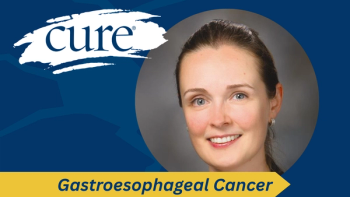
Future of Renal Cell Carcinoma: Hope Is on the Horizon
One expert discusses the “extremely interesting and extremely dynamic” field of renal cell carcinoma, and how recent research and FDA actions could offer hope for patients and their doctors.
Thanks to recent drug approvals and an influx of research, patients with renal cell carcinoma (RCC) — the most common form of
OncLive, CURE’s sister publication, recently caught up with Choueiri, who is director of the Lank Center for Genitourinary Oncology at Dana-Farber Cancer Institute/Brigham and Women’s Hospital in Boston, during the 2019 American Society of Clinical Oncology (ASCO) Annual Meeting in Chicago, where he discussed some highlights in the field of RCC presented at the meeting, and how the treatment landscape is changing for the better.
OncLive: Can you talk a bit about what you found interesting in renal cell carcinoma at the meeting this year?
Choueiri: It is an exciting ASCO 2019 for kidney cancer, where many important studies, even though some were negative, were presented. One study particular was the ECOG study by Dr. Len Appleman, looking at adjuvant VEGFR TKI (Votrient [pazopanib]). Last ASCO, we saw (Nexavar [sorafenib]) didn’t have an effect on progression or survival, which wasn’t surprising. With Dr. Appleman’s study, which was a very well-designed study, there was no difference if you put a patient on pazopanib.
Another interesting thing I found at ASCO this year, and of course this is a non-exhaustive list, was the focus this year, in metastatic disease, on the more rare and difficult-to-treat histologies, such as clear cell and sarcomatoid carcinoma.
There is some beautiful work from KEYNOTE-426, from some retrospective studies as well from the (Opdivo [nivolumab]) and (Yervoy [ipilimumab]) combination, the CheckMate 214 trial, as well as a phase 2 trial of (Tecentriq [atezolizumab]) and (Avastin [bevacizumab]) in non-clear cell RCC that showed that patients do respond to
And what’s refreshing is that there’s an abstract around sarcomatoid histology, and this can happen with every renal cell cancer: clear cell, papillary, and others. But more and more data are coming from these trials and from large data sets that patients seem to have better outcomes with checkpoint inhibitors. And doctors here have presented interesting data about how these patients do not respond well to chemotherapy or targeted therapy, which means there are some immune signatures and biologic differences here.
I look forward to continuing with this path because these tumors, the sarcomatoid-containing tumors, are quite aggressive. So, having a consensus on how to treat them is important, and so far, the checkpoint inhibitors are emerging to be the winners.
The approval of (Bavencio [avelumab]) with (Inlyta [axitinib]) was a very exciting one. How do you think it fits into the current treatment paradigm?
Probably the most important thing is that as of today, May 31, 2019, with KEYNOTE-426, the combo of (Keytruda [pembrolizumab]) plus axitinib showed an overall survival benefit, which remains to many a gold standard. With the combo of axitinib and avelumab, the data as of today, we don’t have anything in the public domain about that, despite the response rate and the progression-free survival, to a certain degree, being very similar between both trials.
Renal cell continues to be extremely interesting and extremely dynamic. To me, it just means that there are more options for patients. Median survival when I was interning on staff in 2007 was 11 months and now, you’re seeing median overall survival, depending on the follow up, of three to four years. Patients are living longer. They’re living with their disease, most of the time, but they’re living longer. So, it’s a win-win no matter what.




